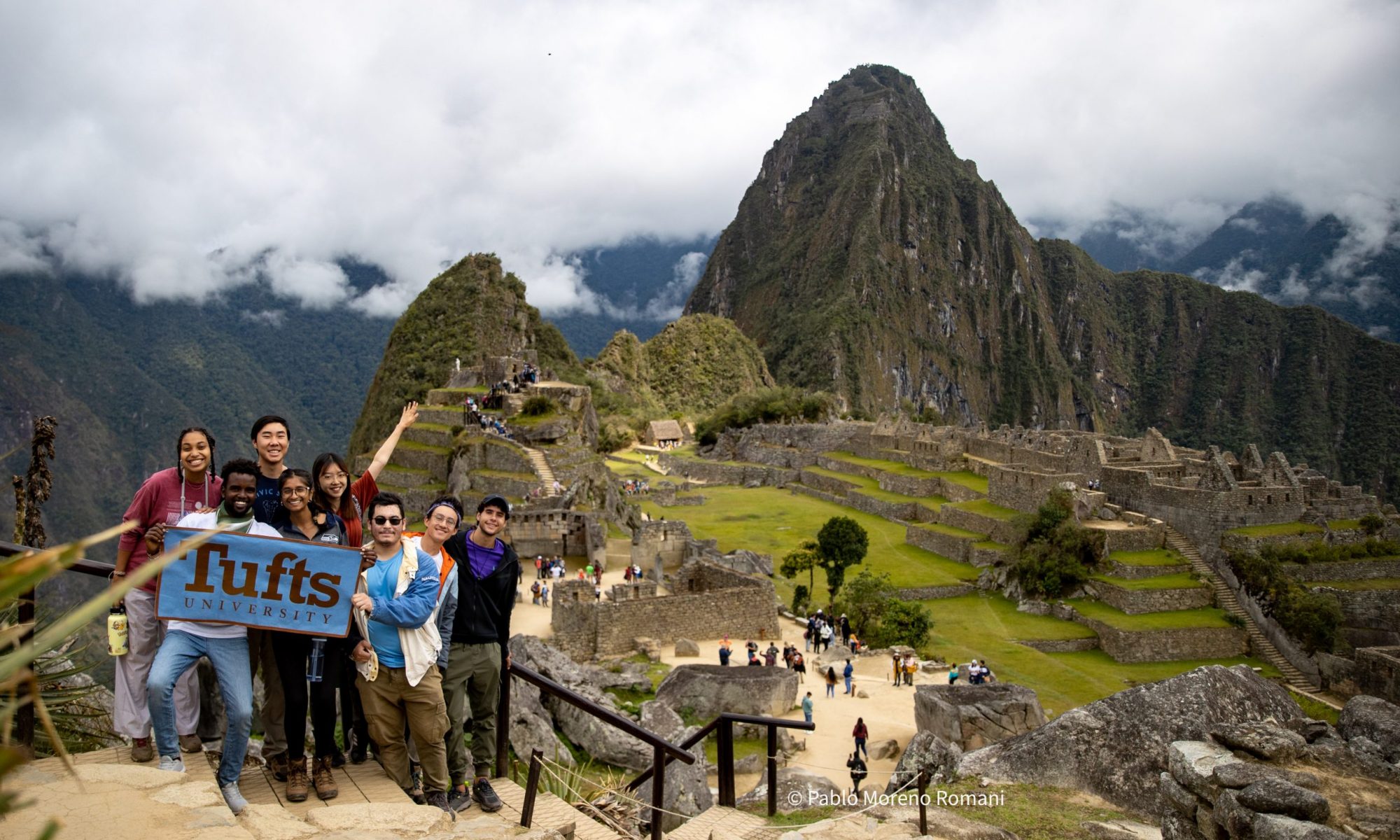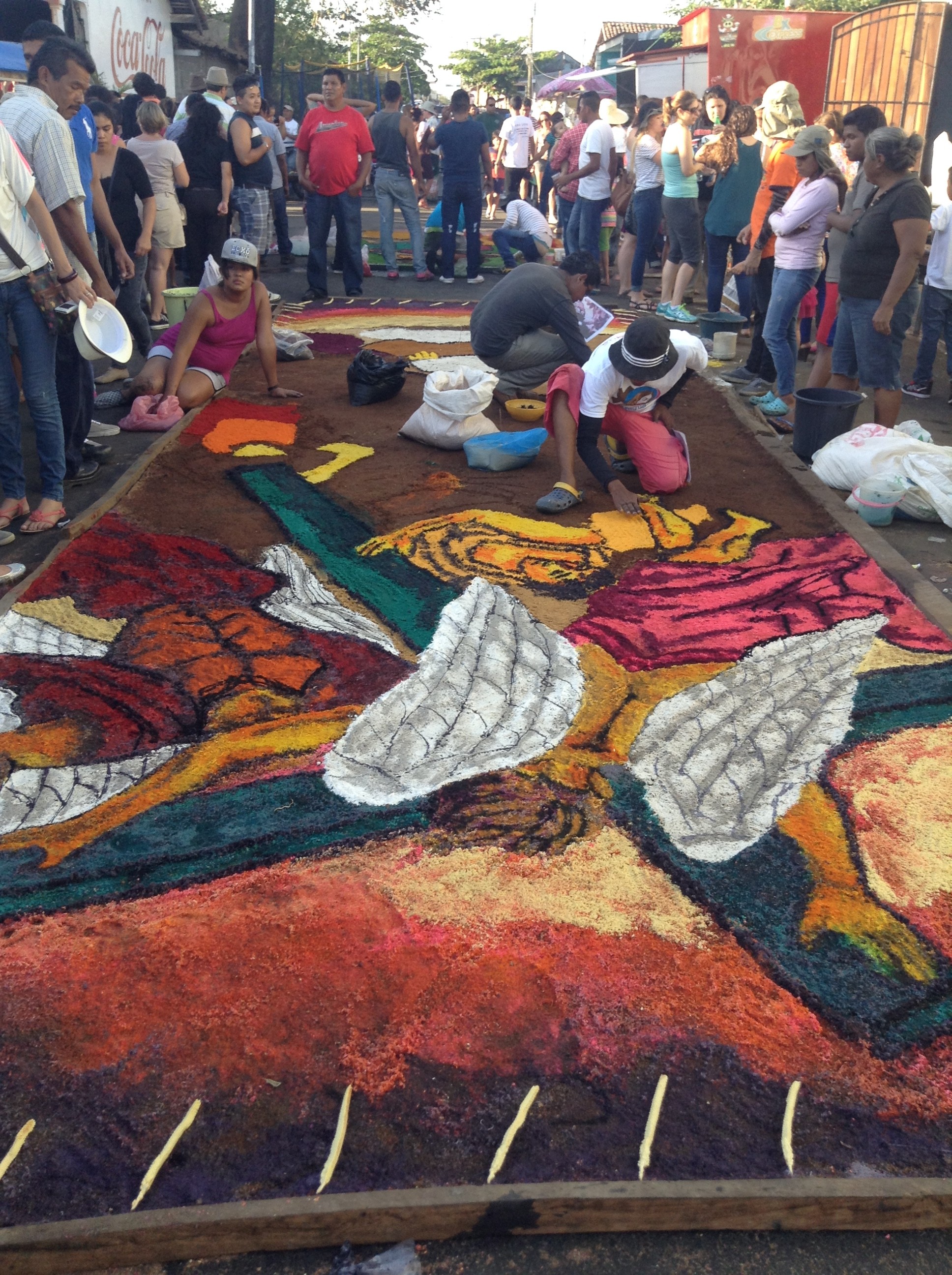by Madeline, Tufts 1+4 Participant
This jacket is my bear. My bear was bought for 16 euro on a sunny Sunday morning to the music of the bustling Rastro market. The Rastro is a flea market where everything from hammers to artisan pottery to bear jackets are sold. Every Sunday in Madrid, the streets of Tirso de Molina and La Latina are filled with Europe’s finest strolling up and down the crowded calles. You can find anything your heart desires for a relatively reasonable price. But back to my bear.
Madrid’s city symbol is a bear leaning up against a tree because Madrid used to have tons of bears roaming around its fields and forests. Other than the enormous statue in the center of the city that everyone uses as a meeting spot before going out, you’d never really know to care. For me, after I brought my new jacket home to Calle Los Mesejo, my roommates immediately began calling it the bear. It definitely had something to do with the fact that it is absolutely giant, fuzzy, and black. For me, it symbolizes my back and forth love affair with Madrid. When I am wearing my bear I am the warmest and coziest I can be. There’s a word in Danish, hygge, that goes far beyond our definition of cozy. It’s cozy X10. That’s how bear makes me feel. But, that is not always how Madrid has made feel. There have been many days throughout the year where I have longed for the warmth of my bed in Buffalo- the comfort of my childhood home and family. Madrid was foreign. My friends weren’t here. I only half understood the language. Work in the foster home challenged me every day. I felt far, far away from hygge. But then I would realize, that is the challenge of growing.

Do you remember laying in bed when you were little suffering from evil growing pains? The aching and the soreness that seemed like it would never ever end. But then one day, you’d look in the mirror and think… wow, maybe I have gotten a little taller. Or grandma would measure you against the growth chart and there would be a huge gap from your last spurt. Right now, I am looking in the mirror with my life measuring me, and I cannot help but see that I really have grown. It’s all the obvious things… I’m more confident. I can speak with much more fluency in Spanish. I feel needed and useful at work. I can travel Europe with ease. I maneuver my way around an enormous city all alone. I went from high school SAT prep to Europe adapted, adult social work in real time. At the beginning, they asked us how we wanted to change and grow from this year. My BS answer was always “I want to be fluent in Spanish.” I didn’t know what to say because I just wanted to experience it without a plan. Traveling as much as I did had a huge impact on my growth. Mostly, however, it was the social situations in Madrid and the work with the girls that gave me growing pains and, in turn, the height.
Moving to a new country, making friends and adapting to a completely new work environment were crucial but hard. For both of these challenges, I was incredibly fortunate to have my bear, but mostly Eva, the seven year old girl in the foster home. Because of scheduling, she is the one I tend to spend the most time with. Before this September, she had never been to school, the doctors, or the dentist. Her father passed away from an overdose in February 2015, and she was left an orphan because no one knows where her mother is. She didn’t know how to read. She’d never done a math problem. She was a seven year old four year old. This year, Eva has become my best friend. We have both grown so much this year, and we’ve been able to do it together. We learned to read in Spanish together. When I teach her something, she teaches me something. We love dancing around to flamenco music and drawing princesses. We can talk about almost anything and we love to go on the swings. She has brought out my inner kid every single day while still shocking me with her natural maturity and sassy intellect. She is soo bright, hilarious and innocently pure. She made my transition through my growing pains bearable on the days that I really struggled. And I think I helped make her transition into living in a foster home and education a bit smoother. I am so lucky to have made a best friend as beautifully as I have with Eva.
Leaving Spain in two and a half weeks doesn’t seem real. I am going to miss Eva and all of the girls so so much. I am going to miss being hygge in my apartment with my roommates who are now my family. I am going to miss everything about Madrid and yet am so incredibly thankful for this experience. And even though the growing pains hurt like hell some days, I have a lot of height to show for it. I am so lucky to have spent time in this city, in my bear.














